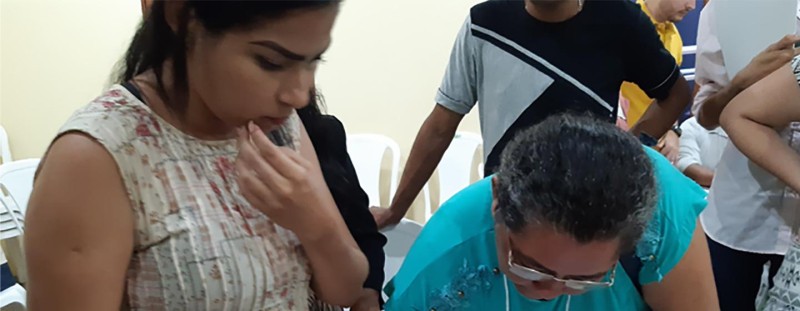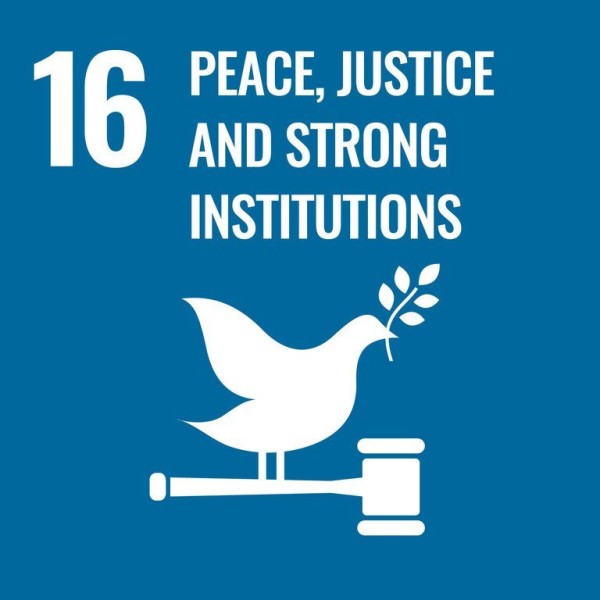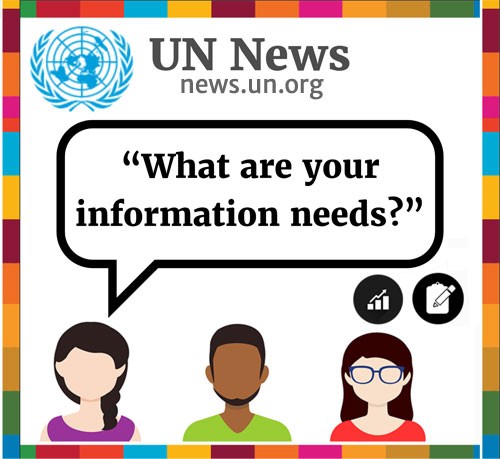newDemocracy/Edwin Msewa. (file) Villagers in Salima District, Malawi, take part in a UN-supported citizen’s assembly.
People around the world should be able to play a more significant role in decision and policy-making processes that impact them and their communities in order to uphold democracy; that’s according to participants in a discussion at the UN focusing on strengthening democratic governance.
In recent years, the UN has increasingly been looking at ways to restore frayed links between people and their governments by encouraging greater citizen involvement.
Civil society organizations (CSOs), in collaboration with the UN, are finding that citizen’s assemblies are a highly effective way of bringing together diverse members of local communities to work on policies and projects that directly affect them.
Representatives of three CSOs recently came to UN Headquarters to share their experiences of running citizen’s assemblies: Cynthia Mbamalu is Director of Programs at Yiaga Africa, a CSO in Nigeria, Silvia Cervellini is the co-founder of Delibera Brasil, and Iain Walker is the Executive Director of the Australia-based newDemocracy Foundation.

© Delibera Brasil Citizens in Fortaleza, Brazil, take part in a UN-supported citizen’s assembly.
Cynthia Mbamalu: Nigeria has a growing and large youth population, and one of the things we’ve learned is that young people want to be part of the solution. They want to be heard.
We create safe spaces for youth dialogue, where diverse groups of young people learn by having conversations about policies. Whatever decisions come out of those conversations can feed into government actions.
But we need to go further, to help young people move from student union movements into mainstream politics, and learn how to advocate for policies that affect issues of concern to youth.
Silvia Cervellini: Brazil has a citizen’s constitution, which has led to the creation of important institutions, such as the National Conference of States and Municipal Councils, but there needs to be a constant effort to ensure that participation is truly universal.
In our experience, we repeatedly witness what we call “citizen mode” being activated, when different people work together to figure out the best possible solution for the common good, even in a time as polarized as ours.
Iain Walker We all want to have a say in the decisions which affect us as citizens. Citizens assemblies are a step to rounding out that role.
One reason is that they are a great chance to mix. We get people from all walks of life – old and young, white collar, blue collar, rich and poor – and put them into one room, to see what we can agree on.
Trust deficit
Cynthia Mbamalu: A lot of young people want to participate but, in Nigeria, there’s a huge trust deficit between citizens and the government.

United Nations SDG 16 promotes peaceful and inclusive societies.
This is why we provide support for young people to promote the idea of electoral participation, so that they are the ones driving the conversation, and mobilizing their peers.
Silvia Cervellini: Trust goes both ways. We use any excuse to invite political leaders to trust the people, and when they see that citizens are involved in a participatory process, they trust them to give the best answers to a problem.
When you have the mayor, or city councillors saying, “I need your help to solve this”, people feel a sense of responsibility to make decisions for others who are not in the room.
And this is the magic of the “citizen’s mode”: they are not thinking about their individual interests or their preference. They are thinking, what’s the best for everybody.
Iain Walker: We all tend to trust people a bit like us, yet parliamentarians often seem to be living in a remote and different world.
Ireland has been a pioneer in creating projects that put randomly selected people and members of parliament in the same process: after spending several days together, they realize that the MPs aren’t that different from them.
Politicians are used to people coming to them emphasizing disagreement, and we always see a breakthrough at citizen’s assemblies, when they say “wow, people really took this problem seriously, and worked to find an agreement”.
This is how we can rebuild trust in electoral democracy, 50 or 100 people at a time, to create a more trusted, cohesive society.
Cynthia Mbamalu, Silvia Cervellini and Iain Walker as well as Aleida Ferreyra, the UN Development Programme (UNDP) Global Lead for Democratic Institutions and Processes, were interviewed by Annemarie Hou, Executive Director of UN Partnerships and the UN Democracy Fund, for an episode of SDG Roundtables, a series of videos discussing themes related to the Sustainable Development Goals.
How the UN supports civil society and human rights
This year marks 75 years since the adoption of the Universal Declaration of Human Rights, a landmark agreement aimed at ensuring a common future of dignity, freedom, and justice for all.
The Office of the High Commissioner for Human Rights (OHCHR) has called for safe and open civic space that is inclusive, celebrates diversity, and incorporates an age and gender sensitive approach recognizing the role of civil society actors, especially women, human rights defenders and journalists.
Yiaga Africa works to increase the engagement of young people in the democratic process and, with UNDP, launched #SixtyPercentOfUs in May 2022, a project aimed at mobilizing at least 60 per cent youth voter registration.
Delibera Brasil, which organizes citizen’s assemblies backed by the UN Democracy Fund (UNDEF), enabling the residents of Brazilian cities to directly participate in policy making to address poverty and inequality.
The newDemocracy Foundation, which, with UNDEF funding, has helped countries bring underserved communities into the political system, and produced a handbook on so-called “democracy beyond elections”, explaining how the principles of representation and deliberation can be applied to nations at different levels of development.
UNDEF is a grant-making body described as a fund for CSOs, aimed at strengthening the voice of civil society, promoting human rights, and encouraging the participation of all groups in democratic processes.

2023 UN News User Survey
Thank you in advance for agreeing to participate in our survey so we can improve and tailor our products to your needs. The survey will take no more than 4 minutes to complete.

